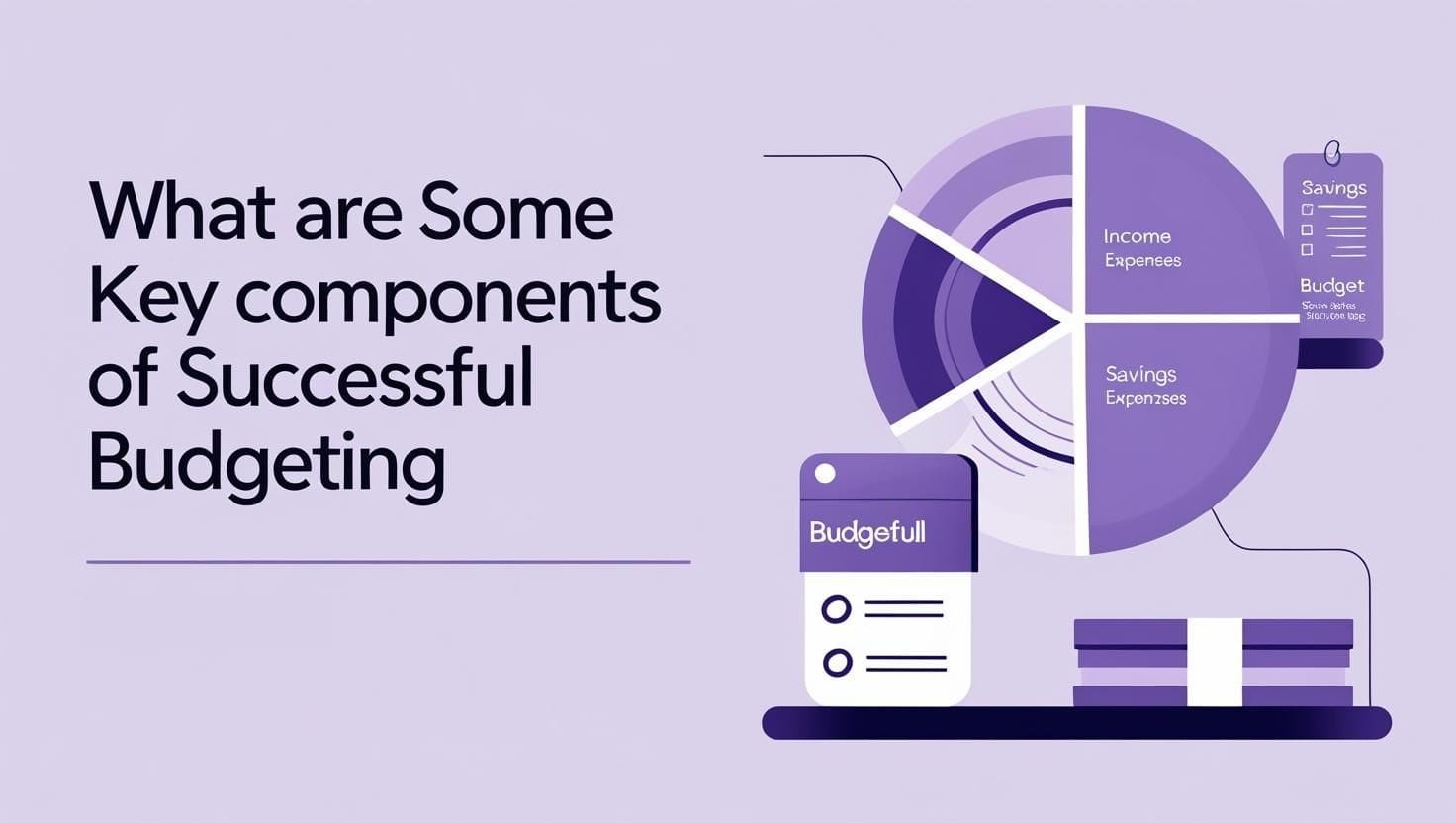Managing money wisely isn’t just about saving more or spending less – it’s about learning the habits and techniques that keep your finances on track throughout life. Whether you’re a student juggling expenses, a parent planning for the future, or someone recovering from financial mistakes, developing strong money skills can make a lasting difference.
Many people struggle with money simply because they were never taught how to handle it. What does it really mean to “budget wisely” or “spend smart”? What are the skills you actually need? This article breaks down specific money skills, with real-life examples, so you can understand and apply them to your own financial journey.
Table Of Contents
Budgeting: Planning Your Money Before You Spend It
Budgeting is the foundation of all personal finance. It’s the ability to plan where your money should go instead of wondering where it went.
Key Skills:
- Creating a monthly budget
- Tracking income and expenses
- Sticking to spending limits
Example:
Ravi, a freelance designer, earns an unpredictable income. To keep control, he uses a budgeting app that adjusts based on what he earns each month. He sets spending limits for groceries, entertainment, and business tools, ensuring he never overcommits financially.
Tools to Try:
- Apps like YNAB, Mint, or a simple Excel sheet
- Envelope method (cash budgeting)
Saving: Paying Yourself First
Saving money is more than just setting aside what’s left at the end of the month – it’s a deliberate practice of prioritizing your future needs.
Key Skills:
- Setting realistic savings goals
- Automating transfers to savings
- Understanding short-term vs long-term savings
Example:
Priya wants to take a vacation in six months. She calculates the cost (₹60,000) and divides it by six, saving ₹10,000 every month through an auto-transfer to a separate account.
Common Saving Goals:
- Emergency fund (3–6 months of expenses)
- Travel
- Down payment for a house or car
Smart Spending: Making Every Rupee Count
Being frugal doesn’t mean being cheap – it means spending consciously.
Key Skills:
- Comparing prices and reading reviews
- Avoiding impulse purchases
- Using cashback, discount codes, or reward points
Example:
Aditi compares prices across three online stores before buying a laptop. She uses a student discount and earns cashback through her credit card – saving ₹6,000 on the total.
Practical Tips:
- Wait 24 hours before making non-essential purchases
- Use price-tracking tools like Google Shopping or Keepa
Debt Management: Borrow Smart, Repay Smarter
Not all debt is bad. But mismanaged debt can drain your finances.
Key Skills:
- Understanding interest rates
- Prioritizing high-interest debt first (Avalanche Method)
- Making payments on time
Example:
Raj has ₹30,000 in credit card debt at 36% interest and ₹1 lakh in education loan at 8%. He pays more toward his credit card each month while making minimum payments on his student loan to reduce high-interest costs.
Common Types of Debt:
- Credit cards (high-interest)
- Student loans (moderate-interest)
- Home loans (low-interest, long-term)
Investing: Growing Your Wealth Over Time
Investing is essential for long-term goals like retirement, buying a house, or funding your child’s education.
Key Skills:
- Understanding risk and return
- Knowing basic instruments: SIPs, mutual funds, PPF, stocks
- Staying invested long-term
Example:
Sneha invests ₹5,000/month in a mutual fund SIP. Over 20 years, with an average 10% return, she could accumulate over ₹38 lakh.
Beginner Advice:
- Start with mutual funds or PPF
- Avoid investing based on hype or emotion
- Read about compounding and risk tolerance
Financial Goal Setting: Giving Purpose to Your Money
Without a clear purpose, it’s easy to mismanage finances.
Key Skills:
- Setting SMART goals (Specific, Measurable, Achievable, Relevant, Time-bound)
- Breaking down big goals into smaller steps
- Tracking progress regularly
Example:
Vikram wants to buy a car in 2 years. He sets a goal of ₹5 lakh and calculates that saving ₹20,833 per month (including expected interest) will get him there on time.
Use This Format:
| Goal | Amount Needed | Time Frame | Monthly Target |
| Emergency Fund | ₹1,20,000 | 12 months | ₹10,000 |
| Vacation | ₹60,000 | 6 months | ₹10,000 |
Negotiation & Financial Confidence
Many people don’t realize they can ask for better terms – on purchases, salary, or even loans.
Key Skills:
- Negotiating bills or purchases
- Asking for raises or better deals
- Understanding your financial rights
Example:
Meera renegotiated her broadband plan after noticing competitors offered better rates. Her provider reduced her monthly cost by ₹300, saving her ₹3,600/year.
Tip: Prepare before negotiations with facts and comparison data.
Financial Literacy: Understanding the Basics
Financial literacy is the base skill set that supports all other money skills.
Key Skills:
- Reading financial statements
- Understanding interest, inflation, and credit scores
- Recognizing scams and frauds
Example:
Aman receives a message saying he won a lottery and needs to pay a processing fee. Thanks to his knowledge of common scams, he deletes the message immediately.
Stay Informed Through:
- Personal finance blogs
- YouTube channels like CA Rachana Ranade or Pranjal Kamra
- Government portals (RBI, SEBI)
Conclusion
Mastering money skills isn’t about being perfect – it’s about being prepared. Whether it’s budgeting your paycheck, managing credit card debt, or making your first investment, each skill helps you build a more secure financial future.
Start with small, daily changes – track your spending, set one saving goal, or read one article a week. These simple actions, done consistently, shape your habits and boost your confidence.
Remember: financial success isn’t about how much you earn, but how wisely you manage what you have.
FAQs About Money Skills
1. What are the most important money management skills?
The most important skills are budgeting, saving, smart spending, debt management, and investing. These skills help you plan, control, and grow your finances over time.
2. How can I improve my money skills fast?
Start by tracking your expenses, setting small saving goals, and reading basic finance resources. Apps and YouTube channels can accelerate your learning.
3. What is a simple example of budgeting?
A ₹30,000 monthly income budget might allocate ₹10,000 for rent, ₹6,000 for food, ₹3,000 for transport, ₹5,000 for savings, and ₹6,000 for other expenses.
4. How much should I save from my income?
A good starting point is saving 20% of your income. Adjust based on your goals, debts, and cost of living.
5. Why is financial literacy important?
Financial literacy helps you avoid debt traps, plan for the future, and make confident money decisions. It’s a life skill everyone needs.
6. What’s the best way to get out of debt?
Use the avalanche method: pay off high-interest debts first while making minimum payments on others. Reduce spending to free up repayment money.
7. Are money skills taught in school?
In many places, money skills aren’t part of the school curriculum. That’s why learning them independently through books or online resources is essential.
8. What is an emergency fund?
An emergency fund is savings set aside (usually 3–6 months of expenses) to cover unexpected events like job loss or medical emergencies.




